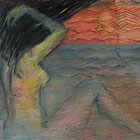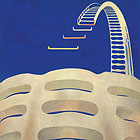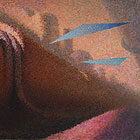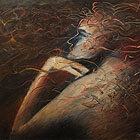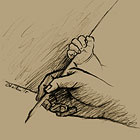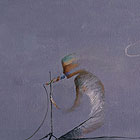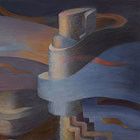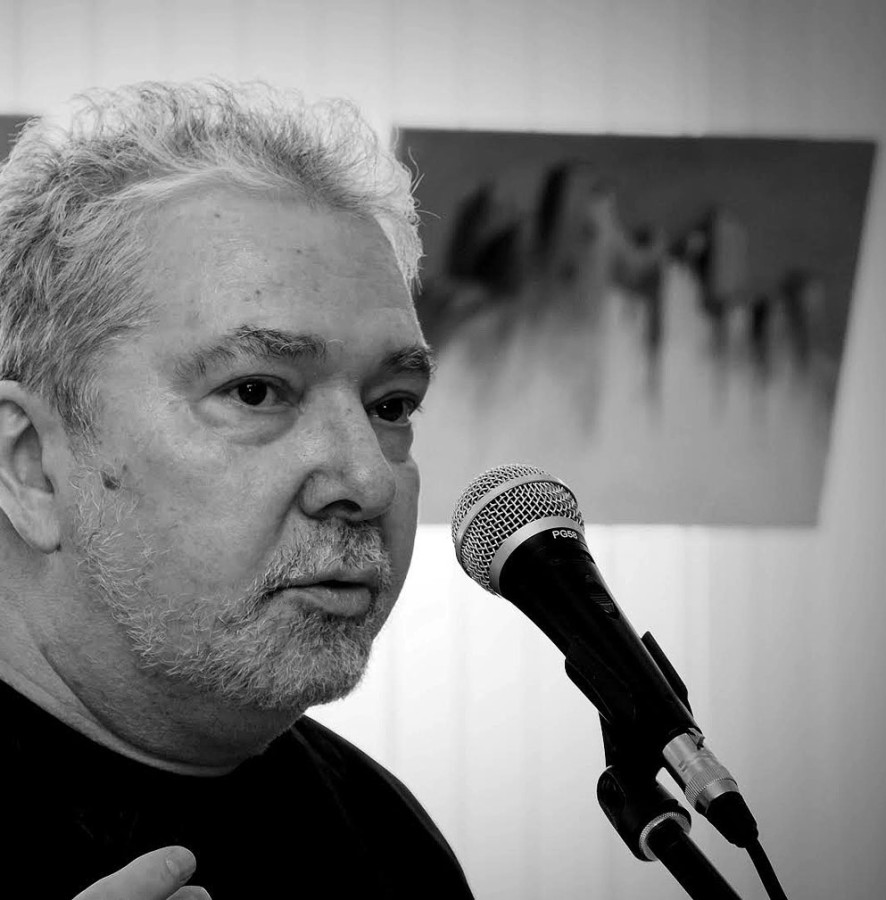To understand fully the work of Sergey Chaikun (Moscow 1954) one should know that he is first of all an artistic illustrator. In his fairy tale images, the characters live all kinds of adventures that, as in children’s stories, are supposed to happen in the imagination of the reader. Chaikun imagines people and nature to hide things that no one would suspect them of. For this he employs a technique involving drawing with aniline on photographic paper. Hiding the ‘unexpected’ in the image he works with what Andrey Sinyavsky, whose writing influenced Chaikun, described as ‘the unaware thoughts’.
Chaikun was educated at the Institute of Arсhitecture, after which he started working on a government project. Looking for more freedom of expression, in the 1970s he joined the Moscow Committee of Graphic Artists, an alternative art movement which encouraged a break with social-realist art. Looking for a narrative style of painting, Chaikun started to create what he calls ‘A world of reality’ that follows the literary description of Thomas Mann and Scott Fitzgerald. His vision is of a parallel reality in which the story happens faster, and with its own dimensions.
In Chaikun’s paintings the refined depictions of his drawings are converted into more colourful and less realism of Origin of the Horizon, today exhibited in the UNOG library, is therefore no surprise. The painting contain two levels: in the first is imaginary presence of the man at the edge of the sea; the second level starts at the horizon, separating the sea from the sky. What would be the head of the man replaced by a dove, symbolizing the unconscious part of human mind which is linked to imagination. The dove is flying away, and this is important for Chaikun, who tries through his art to convey the message that the imaginary can help man to go beyond the incarcerating borders of reality. The artist describes this work as follows:
“Our desires are the cause of our sadness and our joy, but after having lived them all, we always want more; we are never satisfied with what we have or where we are. Our thoughts and desires want to go beyond the horizon, but we forget what we can never reach it. In fact, that horizon is within us since we are its source”.
Vladimir Petrovsky
Le Directeur général,
Office des Nations Unies, Genèva
Décember 2000



